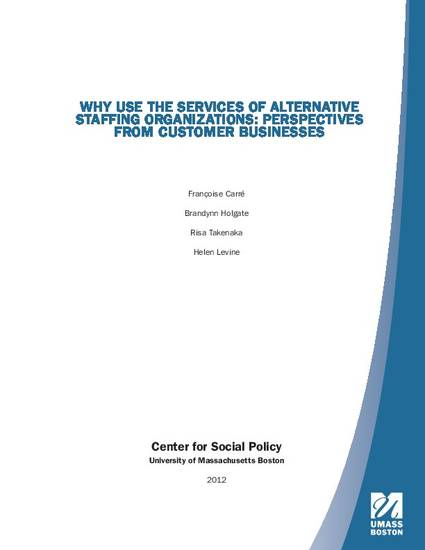
Organizations that aim to improve the experiences and employment chances of job seekers who face barriers to employment have, over the years, had to contend directly with potential employers and their requirements. This is particularly true for community-based job brokers that use a temporary staffing model, offering job access and immediate work to their service population.
Alternative staffing organizations (ASOs) are worker-centered, social purpose businesses that place job seekers in temporary and “temp-to-perm” assignments with customer businesses, and charge their customers a markup on the wage of the position. These fee-for-service organizations can help job seekers who face labor market barriers gain work experience and access potential employers. Created by community-based organizations and national nonprofits, ASOs are often embedded within larger organizations that provide other employment, training, and human services to their community. The parent organizations may also be operating other social enterprise ventures.
Businesses that contract ASOs for staffing services are customers that expect a service, but also represent an opportunity for employment and work experience for job seekers. Thus ASOs must operate with a dual agenda to serve both sides of the equation. In related publications, we have explored how ASOs operate as social enterprises and how the model fits within the goals of the parent organization. With detailed information from five well-established ASOs, and as part of two waves of a demonstration initiated by the Charles Stewart Mott Foundation, we have documented the employment experiences of workers placed in assignments and their employment status after leaving the ASO.
In this paper, we address engagement with businesses and their perspectives on ASO services. This is a major issue for ASOs as well as for other workforce development organizations.
Available at: http://works.bepress.com/helenjlevine/7/
